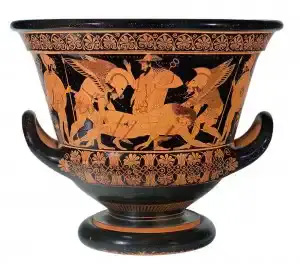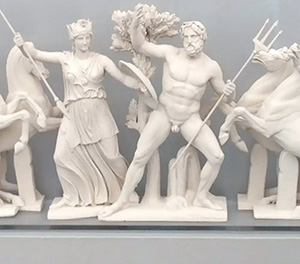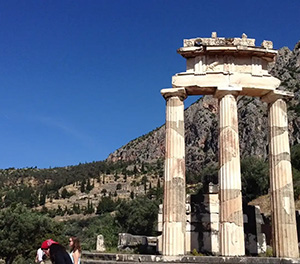Latin Curriculum
Why Latin?
Latin is the basis of a classical education. Over 65% of English words, and most multisyllabic ones, derive from Latin. Latin teaches parts of speech and sentence construction, both of which help students become better English speakers and writers, better communicators. Latin teaches organization, structure, and pattern recognition, all of which contribute to success in math and the sciences.
Latin is by nature interdisciplinary. The study of Latin crosses every other subject in the curriculum. The study of Latin is not just the study of a language; it is the study of history, culture, literature, and religion. The Romans and the Greeks left their mark on the Mediterranean world and Western civilization. By studying Greek and Roman art, architecture, philosophy, history, and government, students can see the roots of modern art, literature, history, government, and more.
Latin students have the opportunity to attend the Kentucky Junior Classical League Convention, as well as the National Convention, where hundreds of smart, like-minded students spend a weekend participating in competitions and celebrating the language and culture of the Romans. Students will also take the National Latin Exam and the National Greek Exam. Many students will win gold medals, an award that only 5% of Latin students qualify for nationally.
9th Grade
Latin I
Students learn the basic elements of Latin grammar and forms in the first two years of study. Students begin to build vocabulary. Mythology, culture, and art history are essential parts of the program.

10th Grade
Latin II
Students will continue to learn the basic elements of Latin grammar and forms as they build vocabulary. Mythology, culture, and art history are essential parts of the program. Students will have the option of taking an elective class of Greek I.

11th Grade
Latin III - Prose Literature
Students engage with the writings of real Romans. The course of study begins with Latin prose, reading and discussing a variety of authors, from Pliny to Caesar to Cicero. Readings focus on the last years of the Roman Republic and its transition to the Principate, and the early years of the Roman Empire, although more modern text may be included as well. Students see the effects of persuasive speaking, word choice, bias, and propaganda. Art history, geography, and culture continue to play an important role as students begin to see the impact of Latin and the ancient world on the modern world of today.
- This course is eligible for up to 6 hours of dual credit.
- Students will have the option of taking an elective class of Greek I or II.
12th Grade
Latin IV - Poetry Literature
Students focus on the poetry of Sulpicia, Catullus, and Vergil, making connections between all of the authors studied, as well as the effect on modern authors and artists. Students are well prepared for the AP Latin exam and are easily able to move into the upper levels of Latin in any college Classics department.
- This course is eligible for up to 6 hours of dual credit.
- Students will have the option of taking an elective class of Greek I or II.

